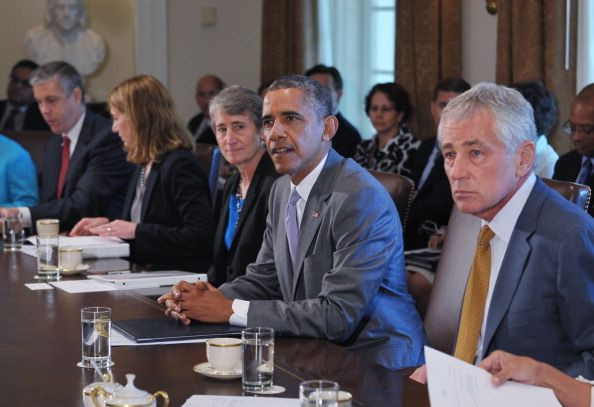Two Lawsuits Set Up New Battle Over For-Profit Colleges Regulations

The for-profit college industry is mounting a new defense against the Obama administration’s ongoing attempts to regulate the career-education sector and curtail student debt. The Association of Private Sector Colleges and Universities, APSCU, on Thursday filed a lawsuit, challenging the U.S. Department of Education's new "gainful employment" rule, tying career-education programs' access to federal aid dollars to how well their graduates do in the job market. The same day, the Association of Proprietary Colleges filed a separate suit, also challenging the validity of the rule.
The Obama administration, lawmakers and consumer advocates have continually assailed for-profit colleges for leaving students cold on career prospects and struggling with student loan debt, while at the same time, for-profits depend on federal student aid for their revenue streams. For-profit colleges enroll 12 percent of students nationwide, and last year they accounted for 44 percent of defaults on federal student loans among borrowers who entered repayment starting in 2011, according to The Institute for College Access and Success.
Amid increasing scrutiny of the industry, Corinthian Colleges, which derived approximately 85 percent of its revenue from federal student aid, collapsed this summer and was forced to reach a deal with the Department of Education to sell or close dozens of campuses. The Consumer Financial Protection Bureau has also sued major for-profit colleges, including Corinthinan and ITT Educational Services.
APSCU, meanwhile, has sued the administration before -- and won. It is the organization's second time suing the Department of Education over "gainful employment" regulations. The Department of Education has been trying to come up with a rule that sticks since 2009. Regulators, in a 2011 rule, eventually settled on two metrics -- a "loan repayment rate" and a "debt-to-income" ratio -- to determine whether career-education programs were doing a good enough job preparing students for the workforce.
When APSCU sued the Department of Education in 2011, the court ruled that the Department of Education had not provided the reasoning to back up the "loan repayment" metric. “Big picture, the judge said: Yes, you can do this rule, but you have to do a better job explaining what you’re doing," says Ben Miller, a senior policy analyst at the New America Foundation in Washington, D.C.
Rather than appeal, the Department of Education headed back to the drawing board. In the new rule, the Department of Education got rid of the "loan repayment" metric and made the "debt-to-income" measure more strict.
Going from two metrics to one metric is a "fundamental" change that the Department of Education will have to be able to explain in court, says Jonathon Glass, an attorney with Cooley, the law firm representing the Association of Proprietary Colleges in its suit. "They’re changing their basic approach to how they’re regulating this conduct, and that has real legal significance as to whether they can justify doing so,” Glass says.
Maura Dundon of the Center for Responsible Lending says the Department of Education has "more than sufficiently" explained its reasoning for the shift. “Agencies can evolve with more information, and they can also take into consideration what the court says, and evolve, which is what they have done,” she says.
No matter the outcome of the case, though, she says the issue of student outcomes at for-profit colleges isn't going away. “It’s not going to be off the table until there’s a solution," she says. "I think everyone knows we need to target our aid dollars more wisely, in a way that fulfills our needs for graduates but doesn’t hurt them.”
© Copyright IBTimes 2025. All rights reserved.





















